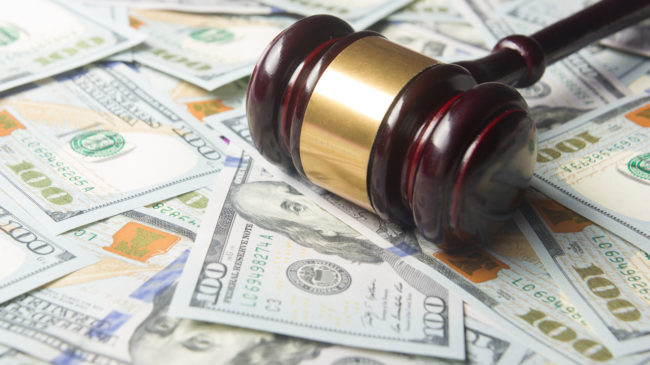Last year, the United States Supreme Court ruled in a unanimous landmark decision that the use of excessive fines by state and local governments violated the excessive fines clause of the Constitution’s Eighth Amendment. The response by state government included a scramble to correct a litany of punishments and fines exacted on drivers for abandoning their cars on highways, driving with expired insurance, and failing to stop at traffic stop signs. During this wave of reforms, questions have been raised as to whether one of the ways states use to collect these fines— the suspension of driver’s licenses— is legal.
Currently, 43 states may suspend your driver’s license for unpaid fines and tickets. While suspensions might make sense in some extreme cases—for a driver who continues to accrue a large number of unpaid tickets, for example— some states create an unfair catch-22 system for many taxpayers: pay your traffic fines or you will lose your ability to drive to work.
Out of all of the states that suspend driver’s licenses due to unpaid fines, only four require proof from the state that the driver had the ability to pay and did not do so.
Additionally, state governments often suspend driver’s licenses for offenses that have nothing to do with driving.
All 50 states can suspend your license for failing to pay child support in a timely manner, a program established in 1998 through the federal government’s Deadbeat Parents Punishment Act. In Connecticut, unpaid property taxes can get your license suspended, and in Nebraska defaulting on alimony payments may do the same. In Iowa and South Dakota, the state can even suspend your license for defaulting on a student loan.
The cost to reinstate a license varies. In states like Arizona and Idaho, the cost can be less than $20. In Connecticut, the price is $175, regardless of the offense. In Indiana, first-time insurance offenders are charged a steep $250, after which fees rise to $500 and then eventually $1,000. While the highest fees (like $1,200 in Massachusetts) are usually reserved for repeat driving under the influence (DUI) offenders, some states will suspend your license for simply being under the influence of drugs or alcohol— whether you were driving or not. And California suspends driver’s licenses for underage drinking, while Alabama, Arkansas, Florida, Georgia, and Texas suspend licenses for non-driving drug convictions.
These reinstatement fees can be dwarfed by the additional fines added by the state over time. A Reason Foundation report highlighted just how quickly charges and fees can add up. Using Michigan’s fees as an example, the authors found that the cost to reinstate a driver’s license can range anywhere from $618 to $2,118, much higher than the official $125 reinstatement fee. This same report noted that over 95 percent of license suspensions in Michigan were due to non-driving offenses.
Similarly, in Florida, you will receive a $25 late fee for any traffic fees along with having to pay an additional 40 percent of any outstanding costs. In California, late fees for vehicle registrations are based on a percentage value: wait up to 31 days and you’ll get away with paying 160 percent of the original registration fee plus a $30 penalty, but after two years of not registering an unused vehicle, you will be forced to pay 260 percent of the original registration fee plus a $100 penalty.
Driver’s license suspensions and these additional fees aren’t the only impediments to fairness in the driving system. At least 35 states impose restrictions on people from getting licenses without a Social Security number, an impediment that falls on immigrants more than any other class of person.
Many states also enforce open-ended “reckless driving” laws, where the line between what is reckless and what is not is unclear. While a normal ticket for speeding in Oregon will cost you close to the national average, add a reckless driving charge to the equation and you can be thrown in jail for a year. And in New York, being cited for driving 11 miles per hour or more above the speed limit can get you sent to jail for up to 15 days.
In some states, drivers are also punished by high minimum insurance liabilities. The average minimum total liability per state is around $102,000, but some states such as Alaska and Maine have total liabilities as high as $175,000. Most of these higher liabilities correspond to bodily injury charges, but in Massachusetts and New Jersey, the minimum property liability runs as high as $50,000, which is $30,000 above the national average.
As the country grapples with, and reassesses, numerous existing laws and regulations that keep many people, including the most disenfranchised in our country, from pursuing opportunities and prospering, it’s important for us to examine the ways governments restrict Americans from working and getting to work, including through outdated and often neglected driving restrictions. Most of the fees associated with driver’s license restrictions are arbitrary and based on absolute values, such as the failure to pay $1,000, rather than the extent of the violation. It is clear these restrictions fall the hardest on the poorest Americans among us. Removing these barriers to work should be at the forefront of policymakers’ minds at this time.
